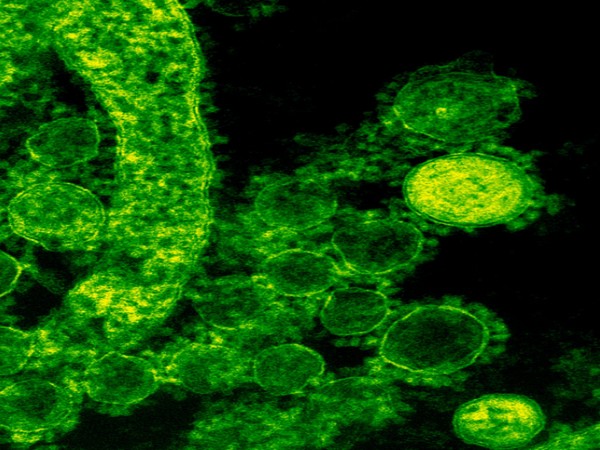Science News Roundup: Bacteria with antibiotic resistant genes discovered in Antarctica, scientists say; Chile's ALMA seeks to double capacity in a decade after a slow re-opening and more
Less than a week after its launch from the Cape Canaveral U.S. Space Force Base in Florida, the CST-100 Starliner autonomously separated from the space station at 2:36 p.m. EDT (1836 GMT) to embark on a five-hour-plus return flight. ESA does not anticipate Russian withdrawal from ISS The European Space Agency does not expect Russia to terminate the joint operation of the International Space Station (ISS) with the West, ESA Director-General Josef Aschbacher told Reuters on Wednesday.

Following is a summary of current science news briefs.
Chile's ALMA seeks to double capacity in a decade after a slow re-opening
Now that Chile's ALMA Observatory is running at full force after the COVID-19 pandemic caused its first shutdown, its director is hoping to double its capacity to better understand black holes. "We're looking to enhance the capabilities of ALMA over the next 10 years," said Sean Dougherty, ALMA's director.
Ancient massive 'Dragon of Death' flying reptile dug up in Argentina
Argentine scientists discovered a new species of a huge flying reptile dubbed "The Dragon of Death" that lived 86 millions of years ago alongside dinosaurs, in a find shedding fresh insight on a predator whose body was as long as a yellow school bus. The new specimen of ancient flying reptile, or pterosaur, measured around 30 feet (9 meters) long and researchers say it predated birds as among the first creatures on Earth to use wings to hunt its prey from prehistoric skies.
Uncrewed Boeing Starliner capsule undocks from space station for return to Earth
The uncrewed new Boeing Starliner capsule undocked from the International Space Station on Wednesday to begin a descent back to Earth from its first journey to the outpost, nearing the end of a high-stakes test flight as NASA's next vehicle for carrying humans to orbit. Less than a week after its launch from the Cape Canaveral U.S. Space Force Base in Florida, the CST-100 Starliner autonomously separated from the space station at 2:36 p.m. EDT (1836 GMT) to embark on a five-hour-plus return flight.
Bacteria with antibiotic resistant genes discovered in Antarctica, scientists say
Bacteria in Antarctica have been discovered with genes that give them natural antibiotic and antimicrobial resistance and have the potential to spread out of the polar regions, according to scientists in Chile. Andres Marcoleta, a researcher from the University of Chile who headed the study in the Science of the Total Environment journal in March, said that these "superpowers" which evolved to resist extreme conditions are contained in mobile DNA fragments that can easily be transferred to other bacteria.
Ghana startup strives for greater African representation in cancer research
In the open-air kitchen of a small research clinic in Ghana's capital, Accra, pathologist Kafui Akakpo carefully carved a piece of cancerous breast tissue into a sample smaller than a matchbox. Hundreds of other samples bobbed around him in plastic jars of formaldehyde, but this one would soon travel across town to Yemaachi Biotech, a Ghanaian research and diagnostics startup that Akakpo thinks could change African cancer studies forever.
Uncrewed Boeing Starliner capsule undocks from space station for return to Earth
The new and uncrewed Boeing Starliner capsule undocked from the International Space Station on Wednesday to begin a descent back to Earth from its first journey to the outpost, wrapping up a high-stakes test flight as NASA's next vehicle for carrying humans to orbit. Less than a week after its launch from the Cape Canaveral U.S. Space Force Base in Florida, the CST-100 Starliner autonomously separated from the space station at 2:36 p.m. EDT (1836 GMT) to embark on a five-hour-plus return flight.
ESA does not anticipate Russian withdrawal from ISS
The European Space Agency does not expect Russia to terminate the joint operation of the International Space Station (ISS) with the West, ESA Director-General Josef Aschbacher told Reuters on Wednesday. The ISS, the largest artificial object in space, has been continuously occupied since November 2000, operated by a U.S.-Russian-led international consortium of five space agencies from 15 countries.
(With inputs from agencies.)
ALSO READ
Soccer-Six arrested for hijack killing of South African footballer
Wanderers, Kingsmead, Newlands among eight South African venues for 2027 World Cup
Italy plans to invite South American, African countries to June G7 summit
Italy to invite African, South American leaders to G7 summit
Police rescue eight African women from sex trafficking ring; two suspects apprehended










